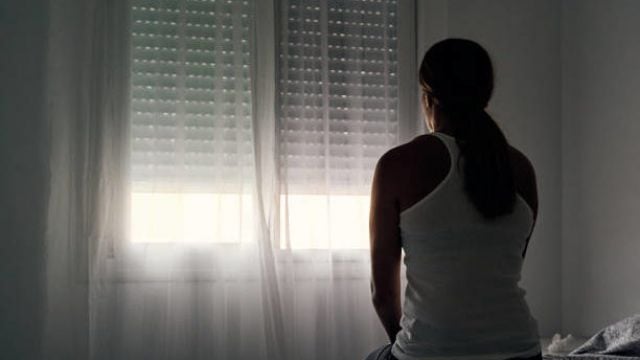19 per cent of women who have experienced abuse in an intimate relationship have attempted suicide, research from Women's Aid has shown.
The survey which included 500 women aged 18-25, as part of their Women’s Aid #TooIntoYou campaign, found that 44 per cent of young women subjected to intimate relationship abuse experienced suicidal thoughts as a result.
These findings, from a survey conducted in 2021, are published in advance of World Mental Health Day on Tuesday.
Depression, anxiety, post-traumatic stress and suicidal ideation are among the impacts intimate partner abuse has on young women, it says.
Women’s Aid research found that 9 out of 10 of young women abused were subjected to emotional abuse which can include being put down, constantly criticized, intimidated, monitored, or threatened with violence.
Mary Hayes, Project Lead of the #TooIntoYou campaign, explains:“For a young person starting to make their way in the world, maybe in their first intimate relationship, abuse can completely knock their self-esteem. If it’s your first relationship you won’t have anything to compare it to, so you might accept abusive behaviours as normal.
"Psychological manipulation can be subtle, and it can be difficult for a young person to grasp that the controlling behaviours their partner is displaying are abusive, as they're just trying to feel good about their relationship.
“When you are young, and you are in an abusive relationship it can be incredibly distressing and frightening. It can impact your self-esteem and mood. Abusive and controlling behaviours can leave you feeling anxious and on edge all the time for how they will react."
In one case, highlighted by the charity, a young woman given the name Orla said she was in a relationship with an “older boy” when she was 17.
“When I was 17, I got into a relationship with an older boy. A few months in, he was adamant for me to stay in his house on the weekends, this is where the isolation began Not hanging out with my friends on weekends, not spending time with my family. If I was to hang out with friends or attend a birthday party he would always join.
"After two years of this behaviour, I became a recluse. I felt so alone from falling out with my best friend and family over him. This made me feel even worse as I thought he was the only person I had left. I knew what he was doing was wrong, but I couldn’t stay away, he had isolated me from all my family and my friends, and I felt like I had nothing left but him.”







